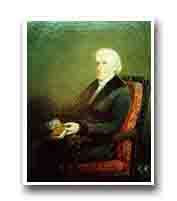Rhus toxicodendron Rhus Toxicodendron or Rhus Radicans, these two plants are now regarded by botanists as identical, differing only in their modes of growth. The former was proved by Hahnemann Read more…
Tag: RHUS TOXICODENDRON
Rhus toxicodendron
Rhus toxicodendron Dry or coated tongue with a triangular red tip. Great restlessness, cannot lie long in one position, changes often with temporary relief, tosses about continually. Lameness Read more…
Rhus toxicodendron
Rhus toxicodendron [Rhus-t.] Mind.– Want of recollection. quiet delirium. Sad, anxious and tearful. Anxiety, with fear of death or of being poisoned. Anxious desire to commit suicide. Great restlessness Read more…
Rhus Toxicodendron.
Rhus Toxicodendron. POISON OAK. N. O. Anacardiaceae. Tincture of fresh leaves gathered at sunset just before flowering time. and Rhus Radicans. POISON IVY. N. O. Anacardiaceae. Tincture Read more…
Rhus toxicodendron.
Rhus toxicodendron. Mind and Disposition. Restlessness which does not permit one to sit quiet, and compels him to throw himself about in bed. Anxiety and apprehensiveness (at twilight). Fear ; Read more…
RHUS TOXICODENDRON
Rhus toxicodendron rhus-t POISON OAK ANACARDIACEAE Adapted to persons of rheumatic diathesis; bad effects of eetting wet, especially after being over-heated. Ailments: from spraining or straining A SINGLE PART, Read more…
Rhus Toxicodendron
Rhus Toxicodendron Modalities: The complaints of this remedy come on from cold damp weather, from being exposed to cold damp air when perspiring. The patient is sensitive to cold air Read more…
- 1
- 2


